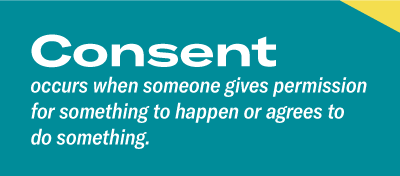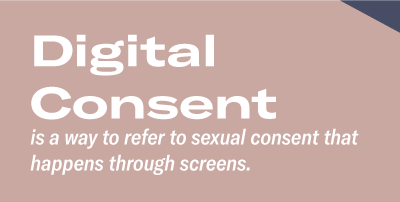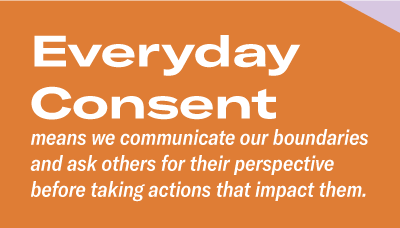- FIND RESOURCES
- Survivors
- Friends & Family
- Advocates & Educators
- Media & Press
- OUR WORK
- SEXUAL ASSAULT AWARENESS MONTH

 |
 |
 |
 |
 |
 |
 |
 |
 |
 |
 |
From messaging apps to online dating websites, there are many ways people are connecting online. Although you aren’t talking face-to-face with someone, you still need to get and give consent along the way. You should always consider how your actions might make another person feel and ask questions if you don’t know.
Unlike in-person interactions, digital conversations can have less clear cues like body language, eye contact, posture, or tone of voice that can indicate how someone is really feeling. So when we communicate online, it’s important to develop new ways to recognize others’ boundaries and give them the space to recognize our boundaries as well. If we shift from making assumptions to clearly communicating our boundaries and asking questions when we’re not sure, we can create a pathway to more respectful online spaces.
We show respect for ourselves and others in everyday ways when we practice consent. Consent gives us a framework for how to communicate boundaries and understand how our choices impact others.
Consent occurs when someone gives permission for something to happen or agrees to do something.
When you ask someone for consent, they need to know specifically what they’re agreeing to, so make sure what you’re asking is clear. For example, “Want to FaceTime tonight at six?” is a more specific way to ask than “Are you free to talk?” Consent also needs to be voluntary, so those who are agreeing should be doing so freely and 100% by their own choosing, without pressure, guilt, or coercion from the person asking.
When it comes to sexual activities that take place through screens — such as sexting, sending nude photos, or connecting for in-person sex — digital consent is a baseline for moving forward.
Digital consent is a way to refer to sexual consent that happens through screens.
Just like in-person sexual encounters, consent should be an ongoing conversation when you’re communicating digitally. Although you aren’t talking in person, you should always consider how your actions might make another person feel and ask questions if you don’t know.
We can practice digital consent by:
Consent isn’t only important when it comes to sex — there are everyday ways that we negotiate our needs with the needs of others.
Everyday consent means we communicate our boundaries and ask others for their perspective before taking actions that impact them.
We can practice and model everyday consent online by:

